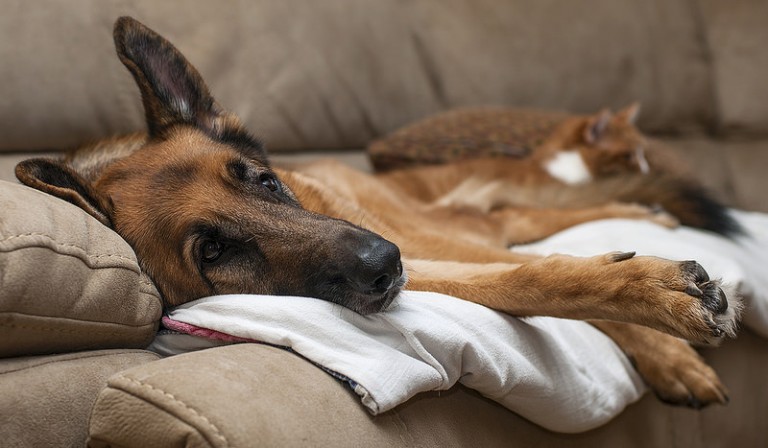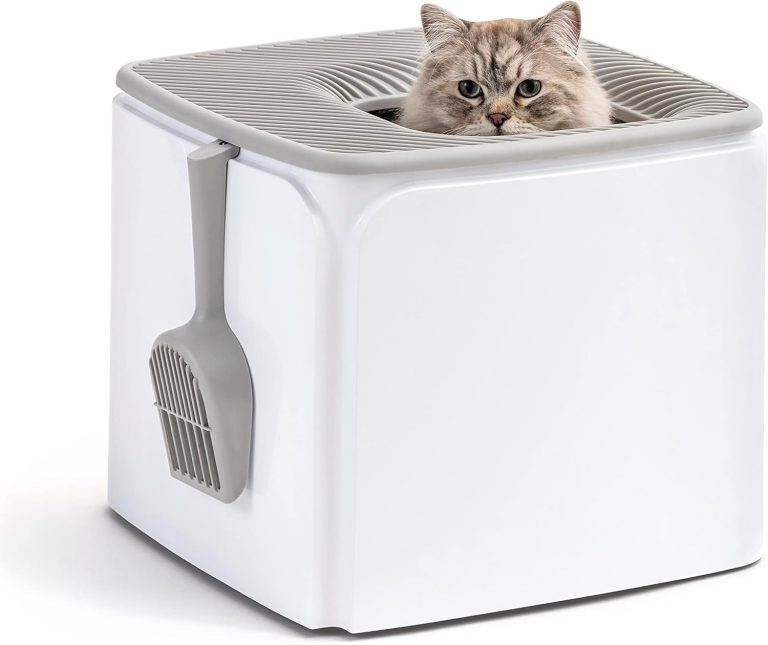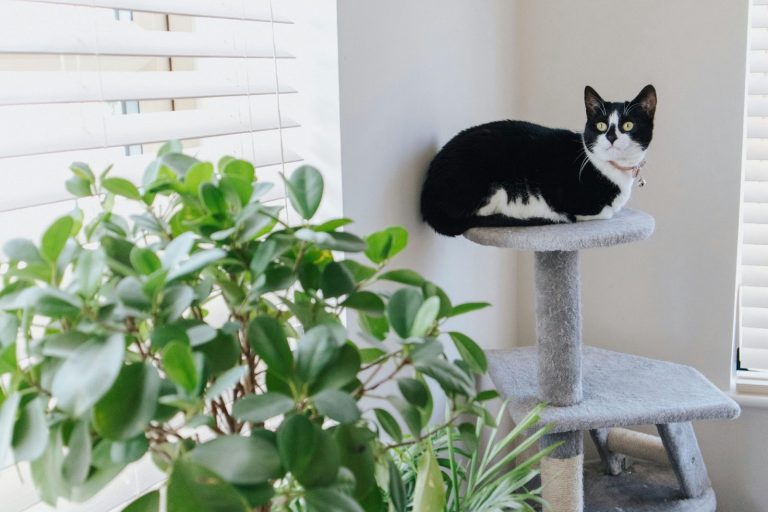Treating Inflammatory Bowel Disease in Cats
Many older cats suffer the misery of IBD. But why is this, and what can you do about it?

Prince is a handsome black cat who sticks in my mind, but not necessarily for the right reasons.
His mom owns a designer boutique and always looks effortlessly chic, and when I first met Prince he was carried like a king in a luxury pet carrier, seated on a designer jumper.
This sweet, gentle cat then stretched and asked for a chin rub — which is when the eye-wateringly bad smell hit me.
Poor Prince’s offensive odor was the result of tummy trouble. Hence the reason for his visit.
Prince’s mom is a sensible woman, and she’d already done the right things and dewormed her cat, cut out dairy products and put Prince on a bland diet. Yet his diarrhea was getting worse. What was going on?

Don’t leave your pet’s safety to chance
Sign up for Petful recall alerts today.

Diagnosing IBD in Cats
Veterinary medicine is like a detective story, and after a series of tests I diagnosed Prince with inflammatory bowel disease (IBD).
This is a common condition, especially in older cats, but it is important to check out other possible explanations for diarrhea.
This is a diagnosis of exclusion. In other words, all other causes of stomach upsets need to be ruled out before we can conclude that IBD is present.
This is because the symptoms overlap with other conditions, including bowel cancer, and the tummy upset won’t settle unless all complicating factors are corrected.
Why IBD happens isn’t known, but it is thought that something triggers the local immune system in the gut wall, which, once activated, causes inflammation.
This trigger factor needs to be identified and removed for a pet to feel better, but this isn’t always possible, unfortunately. Many sufferers require medication to control the inflammation.

Tests Required to Diagnose IBD in Cats
The investigations may seem lengthy, but there is logic behind them.
- Blood tests: To look for conditions that could influence the IBD such as pancreatitis, cholangitis (a liver condition), overactive thyroid glands, lack of digestive acids, anemia and bacterial overgrowth in the bowel
- Fecal analysis: To investigate parasites that can cause long-term diarrhea
- Radiographs: To check for tumors and troubleshoot other abnormalities
- Ultrasound: To give detailed a impression of which layers of the bowel wall are inflamed and check for lymph node enlargements
- Endoscopy: To inspect the lining of the bowel, search for tumors or polyps, and take cell samples
- Histology: Samples of cells are sent to the lab to aid diagnosis
Ultimately, a firm diagnosis is made following a biopsy of the gut wall. However, bowel surgery is associated with a high complication rate.
If all other causes of diarrhea have been ruled out, some vets start the patient on trial treatment rather than putting the animal through exploratory surgery.
What Is IBD?
Prince showed all the classic signs of IBD, which included:
- Vomiting
- Weight loss
- Mucoid diarrhea with blood
His gut was unable to absorb the goodness from his food because the bowel wall was inflamed thanks to an allergic reaction.
IBD is more common in older cats because as their bowel wall ages, it becomes less tolerant of foods it had no problem dealing with in younger life.
So a cat may eat the same diet for years with no ill effects, but they can still develop IBD.
Dr. Karen Becker, DVM, discusses IBD in more detail in this video:

Treating IBD in Cats
Correcting IBD takes a 3-pronged attack.
- Decrease the trigger factors.
- Decrease bowel inflammation.
- Deal with complications.
So what did this mean for Prince?
1. Decrease the Trigger Factors
Diet is a common trigger (along with stress).
The cat may have a dietary intolerance to part of their diet. For instance, a protein such as chicken, fish, beef or lamb — or even gluten.
Each time the bowel encounters this trigger, or allergen, the lining tries to protect itself by flooding the wall with inflammatory cells. The trouble is these cells prevent proper digestion and cause diarrhea.
Changing to a low-allergen diet is crucial. This may be a prescription diet such as Hill’s z/d or Purina HA, or feeding a protein that the cat has never eaten before (your veterinarian can help you chose), such as venison or salmon.
Some cats seem to benefit from adding fiber to their diet. However, this is best given once the symptoms have settled a little because a sore bowel finds fiber difficult to handle.
2. Decrease Bowel Inflammation
Many cats with IBD have a sore, inflamed bowel that needs medical therapy to soothe it.
Steroids are commonly prescribed because of their potent anti-inflammatory effect.
Steroids must be treated with respect, but the good news is cats are less likely to get side effects than other species such as dogs or humans.

3. Deal With Complications
Cats with IBD frequently have complications such as low Vitamin B levels and an overgrowth of bacteria in the bowel — both of which can drive diarrhea.
To correct this, Vitamin B is given by weekly injections for 1 month, and antibiotics are prescribed to correct the bacterial imbalance in the gut.
Even with treatment, recurrence is possible.
According to Dr. Alice Defarges, DVM, MSc, DACVIM, “Relapses occur and are most often precipitated by dietary indiscretion.”
Prince Is Feeling Well Again
Prince was a tough case to crack, and it took a while to get his meds right (it often does with IBD cases).
But now he’s fit, well and has regained the weight he lost because of his IBD.
Better still, he’s a plump, affectionate cat who is a pleasure to fuss over because he’s no longer dogged by a bad smell.
Preventing IBD in Cats
Key to preventing IBD in your cat is identifying the trigger factor, such as a particular food the animal cannot tolerate, and removing it from the diet.
References
- “Management of canine inflammatory bowel disease.” Marks. Comp Cont Ed Pract Vet, 20: 317–332.
- “Idiopathic inflammatory bowel disease in dogs and cats.” Jergens, Moore & Haynes. JAVMA, 201: 1601–1608.








